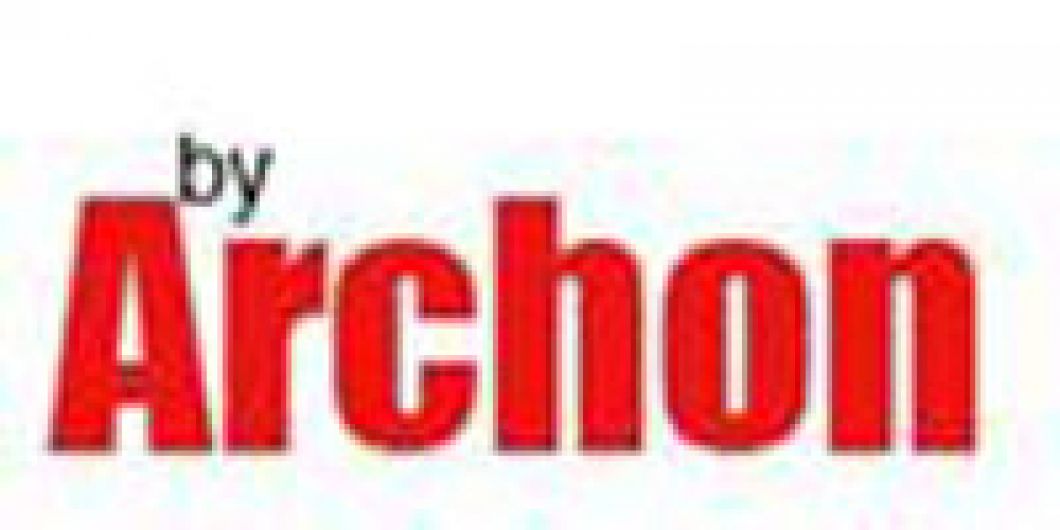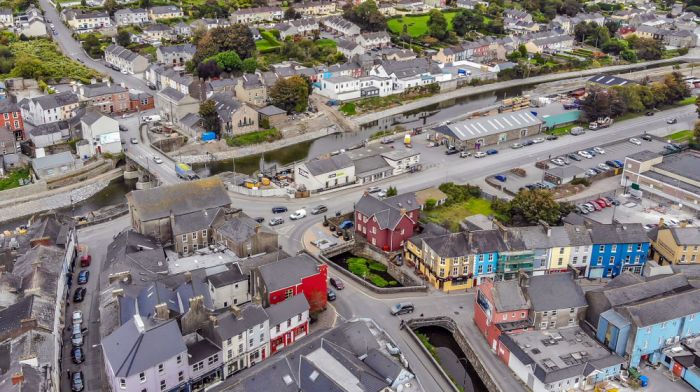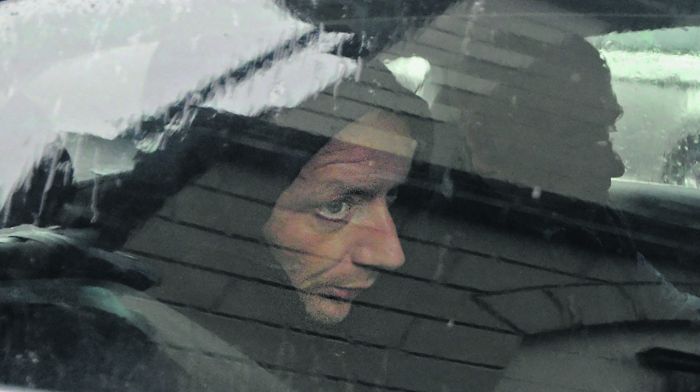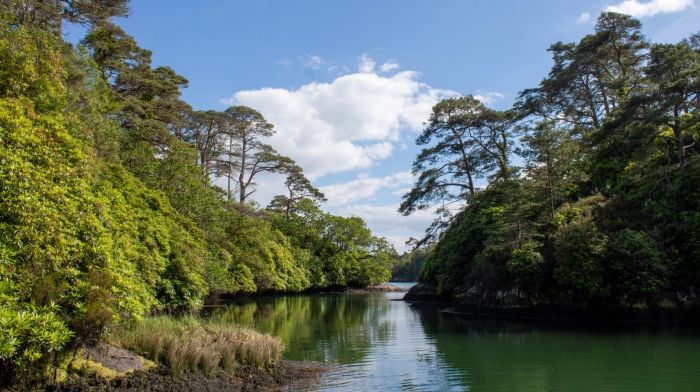Fine Gael's endorsement of the right-wing Spanish PM Rajoy was par for the course
Fine Gael’s endorsement of the right-wing Spanish PM Rajoy was par for the course.
PERHAPS if our esteemed Taoiseach, Leo Varadkar, had spent some time reading the history of Catalonia, he wouldn’t have made such a contemptuous assessment of that country’s recent independence referendum.
Parroting the EU and Spanish Government line, Vlad declared that the Irish Government would not acknowledge the result of the Catalan referendum, despite the fact that 90% of voters backed independence. He loftily declared the referendum illegal because it did not respect the laws, constitution and ‘territorial unity of Spain.’
That was his opinion but the fact that he saw fit to lecture us on the need to support the Spanish prime minister, Mariano Rajoy in his constitutional battle with Catalonia was grotesque, if for no other reason than because in 2016 an EU report labelled Spain’s government to be the most corrupt in Europe!
Of course, Fine Gael’s endorsement of the right-wing Rajoy was par for the course. After all, Eoin O’Duffy, a self-proclaimed fascist and the first president of Fine Gael, took 700 Blueshirts to Spain in 1936 to help destroy a sovereign, democratic state under attack from General Franco’s fascistic armies.
History is bunk
Yet, one might have assumed that, before making his pronouncement, Vlad would have rummaged through a book about Catalonia and read something relating to the huge sense of injustice that underpins the Catalan independence movement. He could have started with Lluís Companys, the president of Catalonia until 1940. Franco murdered him.
But the historical grievances of Catalans do not interest Varadkar. Injustices such as Spain’s abolition of Catalonia’s political institutions, laws that prohibited speaking Catalan in public or using it in official business, the summary executions of some 3,400 anti-Franco opponents between 1938 and 1957, the disappeared, the arrests, the torture, and the fact that one of Franco’s last political acts was to order in 1974 the death by strangulation of a 26-year old political activist, Salvador Puig Antich.
With such political horrors embedded in the collective memory, it was inevitable Catalans would seek political independence. And it also was inevitable that Varadkar and his government – who are no friends of nationalism, Irish or Catalan – should mount a bone-headed defence of Spain’s controversial prime minister, Mariano Rajoy.
Democracy in danger
At the heart of the matter was Rajoy’s use of the Guardia Civil to disrupt the Catalan referendum through violent means, a tactic that made little sense by reason of the fact that the pro-independence movement could have lost the referendum because of lack of support.
Varadkar, however, chose to ignore the arrest of officials, the seizure of ballot boxes and the firing of plastic bullets to try to prevent the referendum from happening. Nor did it concern our Taoiseach that some years ago this same police force narrowly failed in an attempt to seize power.
Worse still, Madrid’s heavy handed reaction compromised the success of any future moves to negotiate an agreement that would end the crisis.
Indeed, Varadkar with his ‘hard man’ approach to a problem that had nothing to do with this country sounded as extreme as Rajoy. What a pity that, before sounding-off like a foghorn, the Taoiseach did not seek the advice of someone like the Scottish Cabinet Secretary for External Affairs, Fiona Hyslop.
She said, in relation to Catalan independence, that ‘all peoples have the right to self-determination and to choose the form of government best suited to their needs, a principle which is enshrined in the UN Charter.’
And, then, there’s this question: if, according to the Varadkar logic, the Catalans acted illegally, did Sinn Fein in 1919 also act illegally when its newly-elected MPs chose to establish a national parliament in Dublin rather than attend the one in London? Indeed the first step towards independence was the Dáil’s rejection of British law, Britain’s unwritten Constitution and Britain’s ‘territorial unity.’
Just like Catalonia in regards to Spain!
In an agri-pickle
Here’s an interesting one: Three of Ireland’s premier food producers in the dairy sector are up to their oxters in bovine ordure. They’ve been listed in the national media as among the country’s worst polluters when it comes to environmental compliance.
Companies that breach environmental regulations are subject to increased inspections and monitoring by the environmental regulator. They also have to endure some rather bad publicity.
All very embarrassing for the country’s premier agri-business, particularly when the response to the news was swift and controversial. For instance, the Irish Wildlife Trust (IWT) came straight out and demanded that the government should abolish its ongoing Origin Green campaign.
Created by An Bord Bia as the world’s first national food sustainability programme, Origin Green’s purpose is to bring together the entire food industry – farmers, food producers, retailers and foodservice operators – in pursuit of a common goal.
A marketing ‘sham’
And that goal is the production of safe, nutritious food within a viable industry that –as the blurb puts it – simultaneously ‘protects and enhances the natural environment and the local community.’
But, now, concerned by the distressing EPA report, the Irish Wildlife Trust has described the Bord Bia marketing initiative as ‘a sham.’ It said Origin Green created the false impression that all was well in the countryside, when it wasn’t.
Birdwatch Ireland also dived into to the controversy, commenting that the revelations didn’t come as a surprise. It made the important point that the government’s agricultural policies were not compatible with environmental protection, and that polluting companies should not get Origin Green certification.
Created a rumpus
In the meantime, residents and community organisations in East Cork – Cobh, East Ferry and Aghada – are following the ongoing controversy with great interest. They’ve already objected to Dairygold’s plan to build a 14-kilometre pipeline from Mogeely to East Ferry in Cork Harbour. The pipeline will be used to discharge three million litres of waste water every day from a new cheese production facility at Mogeely.
The East Cork objectors are awaiting a planning appeal decision on the matter, but Dairygold says the new plant will not cause a deterioration in water quality.
However, studies undertaken by NUI Galway contradict the co-op’s assertion that waste dumped in the inner harbour from the proposed factory would be carried safely away on outgoing tides.
And, to add to Dairygold woes, locals living in Mogeely are concerned at proposals for a new factory. In a submission to the planning appeals authority they say their lives have been damaged by ‘highly-offensive odours and extremely loud noise’ from the factory that already exists in their town.
But, intriguingly, whatever the outcome of appeals to An Bord Pleanála, one thing is certain: the current travails of some of Ireland’s largest farmer-owned agri-businesses have created a rumpus of considerable proportions.







